We frequently receive tip-offs from accountants and lawyers who’ve seen firms promoting dubious tax schemes.
This often requires a large amount of analysis from us to work out exactly what’s going on, and what the true tax consequence is.
But sometimes it’s obvious that what’s being proposed is wildly improper, even fraudulent. We’re going to start publishing cases like this as “tax scam of the day” – documents and links plus a short explanation of why what’s proposed is a scam.
We hope that this helps warn potential clients off dangerous scams, and prompts HMRC and other authorities to be more proactive identifying and closing down cowboy tax advisers.
What’s the claim?
Corporation Tax Rebates’s website says they’re the “UK’s First Corporation Tax Recovery Service Based on Data Risk Compliance”. The pitch is that GDPR can lead to large claims against businesses, so accounting rules permit companies to make large provisions against future liabilities, resulting in tax rebates.
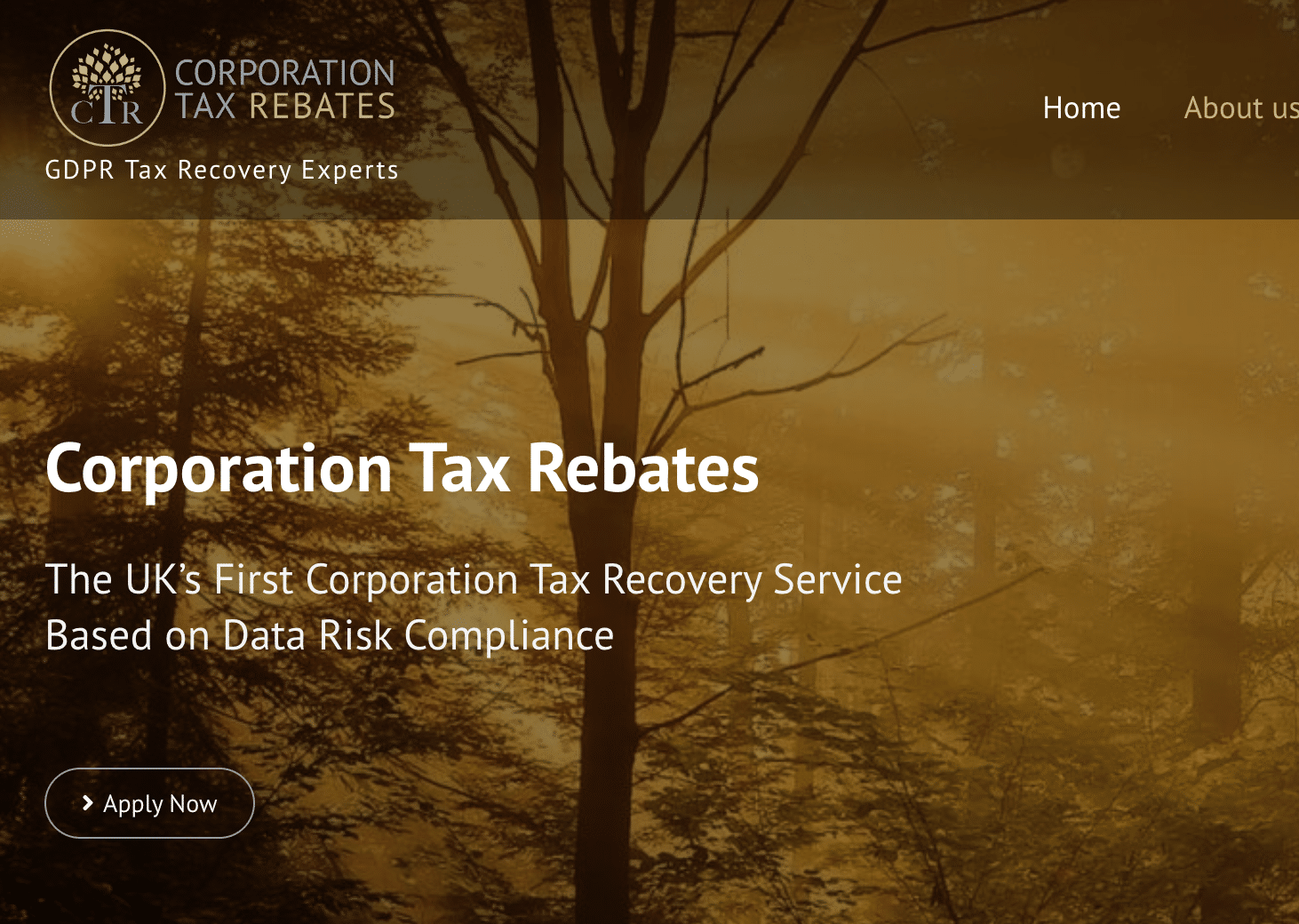
They claim to have recovered large sums for clients:
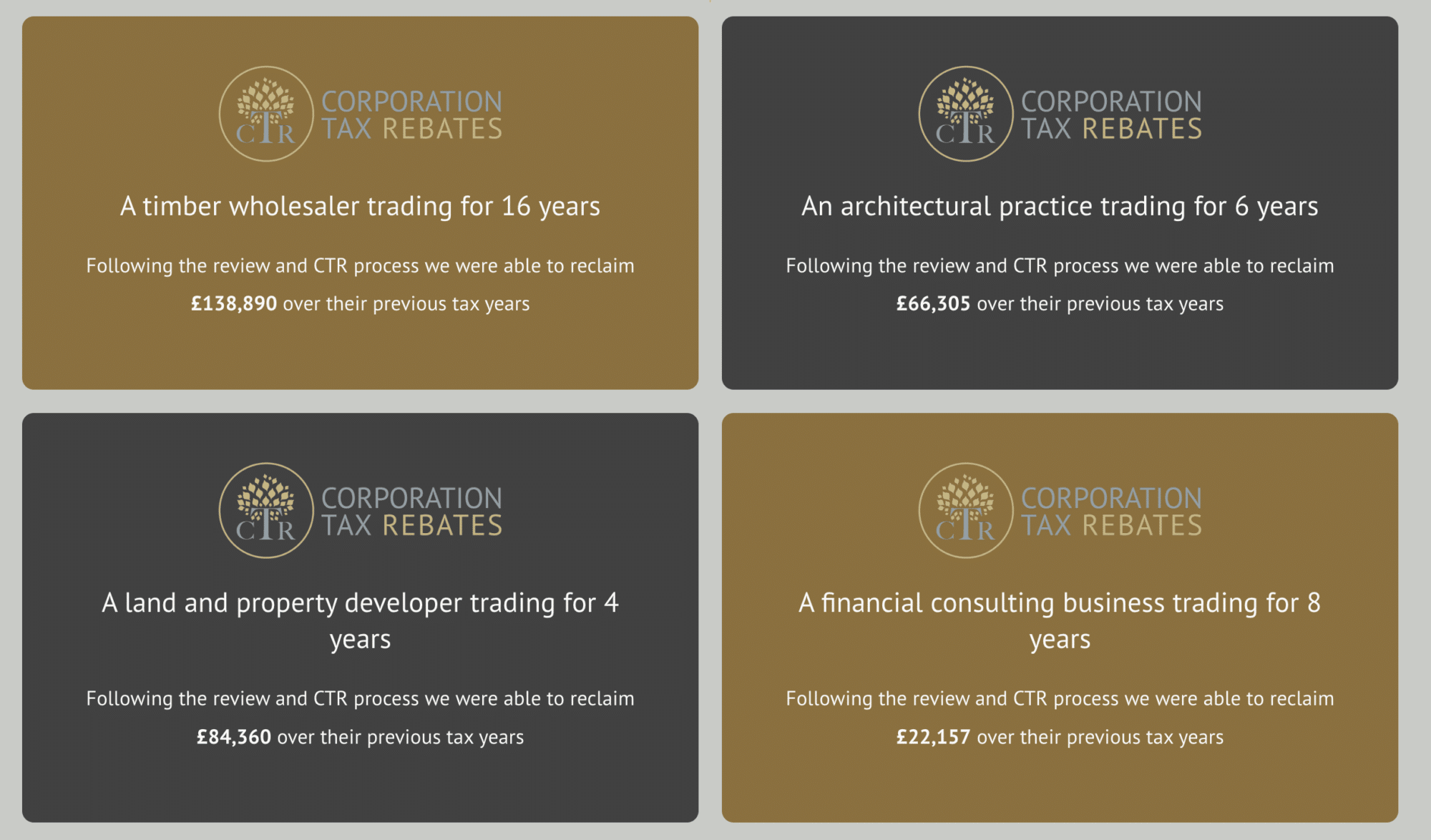
Why is it a scam?
If Corporation Tax Rebates Ltd is the “first” company offering this service, that’s for the very good reason1Many thanks to Tristam Price for this line. that you can’t recover corporation tax based on vague thoughts that you might have to pay GDPR fines/damages at some point in the future. We explained why here but, in short, the fines/damages have to be probable and quantifiable, and for almost all small businesses this won’t be the case.
We can see no proper basis for timber wholesalers, architects, land developers or financial consulting business to have six figure provisions for GDPR damages. The obvious way to test this: how many companies in these sectors have had six figure damages awards against them? The answer is: hardly any. Civil damages awards are rare and small.
The danger for Corporation Tax Rebates’ clients is that this scam will appear to work. If you amend your corporation tax return then you may just get a refund automatically (although even this isn’t straightforward – see Richard Thomas’ comment below).
If HMRC become aware that a company’s doing this, we are confident they would open an enquiry, and the consequences for the company are likely to be bad. Any HMRC enquiry could come up to a year after the refund scheme… and, if it all goes wrong, good luck recovering your fee from Corporation Tax Rebates.
The documentation
There are many websites pushing GDPR tax credits, but most appear highly amateurish, and our suspicion is that they’re just low-level scams. Corporation Tax Rebates Ltd is different. The company and its introducers send out glossy publicity material that goes into some detail.
Here’s their FAQ (PDF version here):
The process for accountants is set out here (PDF here):
And a “confidential briefing note” for insolvency practitioners and accountants (PDF here):2We note that the documents are asserted to be confidential. They are not; they were sent to our source without any prior agreement of confidentiality, pre-existing business relationship or any other circumstances under which it is reasonable to expect a duty of confidence to arise. Even if they were confidential, there is a public interest in disclosure, and the iniquity rule means that there is never confidentiality in a fraud.
Who is behind the company?
Corporation Tax Rebates Ltd’s directors are Katherine (Kate) Lonsdale, Pamela Moore and Ian Andrew Sinclair-Ford (and, previously, Michael Woolnough). You can see their details here.
Ian Andrew Sinclair-Ford is listed as the “person with significant control” of the company 3Although it’s not clear that’s correct – each of the three holds 1/3 of the company. There are other oddities in the Companies House filings, with share capital of £105 but only one £1 share ever alloted/issued. and the document metadata shows him as the author of the “confidential briefing note”. He gives his profession as “solicitor”.
We believe anyone with legal, tax or accounting training should know this scheme is improper. We therefore believe it should be investigated as criminal tax fraud, not as tax avoidance. We have reported Sinclair-Ford to the SRA
Many thanks to M for the original tip, and to Trevor Fenton for sending us the documents and looking into the Companies House materials.
Documents ©Corporation Tax Rebates Ltd and reproduced here in the public interest and for purposes of criticism.
- 1Many thanks to Tristam Price for this line.
- 2We note that the documents are asserted to be confidential. They are not; they were sent to our source without any prior agreement of confidentiality, pre-existing business relationship or any other circumstances under which it is reasonable to expect a duty of confidence to arise. Even if they were confidential, there is a public interest in disclosure, and the iniquity rule means that there is never confidentiality in a fraud.
- 3Although it’s not clear that’s correct – each of the three holds 1/3 of the company. There are other oddities in the Companies House filings, with share capital of £105 but only one £1 share ever alloted/issued.


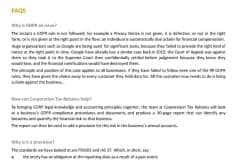
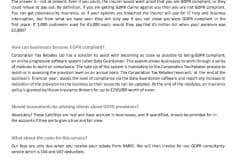
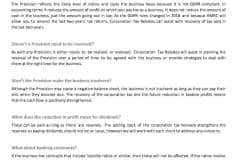
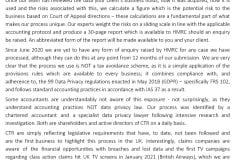

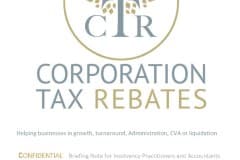
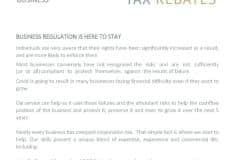

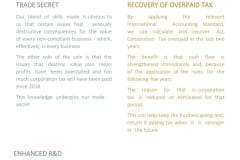

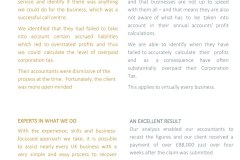

9 responses to “Tax scam of the day: “Corporation Tax Rebates Ltd””
The company has now been dissolved.
There is now an HMRC Spotlight on these GDPR issues: https://www.gov.uk/guidance/general-data-protection-regulation-gdpr-provision-used-to-reduce-tax-liability-spotlight-65
Have HMRC still not stopped using ‘pay now, check later’? It was always a recipe that encouraged fraudsters – and apparently the Exchequer now needs funds/cashflow more than ever. Time for a simple policy change?
Am I missing something obvious here? Example – company with 31 Dec ARD. It has filed its Dec 23 return and paid the tax. Surely it would be able to amend (and recover tax for) the two years 2022 and 2023 (by 31 Dec 24)?
We used this, but HMRC opened up an investigation on it, and we received a a large amount back
CTR, to their credit, did deal with it, but
1) They often responded late to the HMRC deadlines, or last minute.
2) They wouldn’t share with us what they were saying about our business due to ‘Intellectual property’, so we had no idea what was being said, or whether it was true or false.
As a result, and the stress of a HMRC enquiry, we decided to reverse it and just pay the tax back. HMRC did not fine us, but just charged us some interest, and we parted ways with CTR.
They had admitted, however, that HMRC had not approved any GDPR related claim of theirs.
Anyone considering using any scheme like this should always ask
– Is it HMRC approved, in the sense have they approved any claims?
– Will you have insight of each submission to HMRC
– Will this be passed by auditors / accountants?
If the answer is no, don’t bother.
Hi Frank, and thanks. As you say, those are huge warning signs.
You can write to HMRC and they will send you copies of everything CTR sent to HMRC. After all, CTR were your agent.
We did ask HMRC and they said they couldn’t provide it.
The documentation here refers to the fact that HMRC will allow you to amend the last two year’s tax returns, and that CTR will assist the company in recovering two years’ tax paid.
My first point is that find it very difficult to see how one recovers two years’ tax – ie tax already paid before CTR get going. Paragraph 14 Schedule 18 FA 1998 allows you until 12 months from the filing date, itself 12 months from the end of the accounting period, and it would need to be unusual circumstances where two years’ tax is open to recovery by amendment.
Conceivably they would rely on a claim for overpayment relief under paragraphs 51 to 51G Schedule 18 for the earlier year, but then, why not for the two years before that?
Or is the idea that the provision claimed in the first year is so large that it creates a carry-forward loss? Or is carried back one year?
The other thing that occurred to me is to wonder whether they go through the whole process necessary where the claim has to be that the accounts filed with the return were defective when filed.
If they rely on an amended CT return plus their report, but do not supply validly revised accounts, then the claim will fail in limine, because it is trite law that you can only deduct an item that features in the profit and loss account or income statement.
To revise accounts voluntarily under s 454 Companies Act 2006 requires the provisions of the Companies (Revision of Defective Accounts and Reports) Regulations 2008 to be followed and regulation 10 (Effect of revision of accounts) taken into account. There’s no indication in the material that that is what is being done.
Though even if they meet those requirements and the revision is accepted by HMRC as affecting the returns, the deduction should be denied for all the other reasons given.
Hi Richard – I also don’t understand how it works in practice. We haven’t found a single business that’s used this one. Partly I expect because much smaller scale than the R&D tax credit merchants. However I fear another reason is that it’s hard for HMRC to stop and there haven’t been many enquiries…